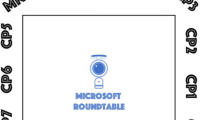Abstract
The collaborative design of complex systems is a challenging task. It requires phases of linear as well as creativity oriented work. Also phases of collaborative work have to alternate with work in solitude, requiring a smooth transition between them. This in turn results in awareness becoming a crucial factor. Within the context of designing socio-technical processes through modeling we have developed tools and methods to integrate individual and collaborative creativity into modeling with special respect to awareness thus allowing for a smooth transition between phases of working in solitude and phases of collaboration. We have conducted multiple experiments on the subject following an action research approach which allowed for reflecting on the influence of awareness on collaborative process design in co-located meetings while also improving the socio-technical setting they were applied in. Derived from our findings we show requirements for further development of the socio-technical setting and show future directions such as the integration of the described setting into other areas of design.







Similar content being viewed by others
Notes
visit http://www.seeme-imtm.de for more information
References
Briggs, Robert O. and Reinig, Bruce A. (2007). Bounded Ideation Theory: A New Model of the Relationship Between Ideaquantity and Idea-quality during Ideation. In Proceedings of the 40th Hawaii International Conference on System Sciences, Big Island, Hawaii, USA, 3–6 January 2007. IEEE Computer Society, pp. 16–26.
Briggs, Robert O. and de Vreede, Gert-Jan (2009). ThinkLets: Building Blocks for concerted Collaboration. Nebraska: University of Nebraska.
Csikszentmihalyi, Mihaly (1996). Creativity: Flow and the psychology of discovery and invention. New York: Harper Collins.
Diehl, Michael and Stroebe, Wolfgang (1987). Productivity loss in brainstorming groups: Towards the solution of a riddle. Journal of personality and social psychology, vol. 53, no. 3, September 1987, pp. 497–509.
Dourish, Paul and Bellotti, Victoria (1992). Awareness and coordination in shared workspaces. In M. Mantel and R. Baecker (eds): CSCW '92 Proceedings of the 1992 ACM conference on Computer-supported cooperative work, Toronto, Canada, 31 October–4 November 1992. New York: ACM Press, pp. 107–114.
Fischer, Gerhard, Scharff, Eric and Ye, Yunwen (2004). Fostering Social Creativity by Increasing Social Capital. In M. Huysman and V. Wulf (eds): Social Capital and Information Technology. MIT Press: Cambridge, pp. 355–399.
Fischer, Gerhard and Herrmann, Thomas (2011). Socio-Technical Systems: A Meta-Design Perspective. International Journal of Sociotechnology and Knowledge Development, vol. 3, no. 1, 2011, pp. 1–33.
Herrmann, Thomas and Loser, Kai-Uwe (1999). Vagueness in models of socio-technical systems. Behavior & Information Technology: Special Issue on Analysis of Cooperation and Communication, vol. 18, no. 5, 1999, pp. 313–323.
Herrmann, Thomas (2009). Systems Design with the Socio-Technical Walkthrough. In B. Whitworth and A. de Moore (eds): Handbook of Research on Socio-Technical Design and Social Networking Systems. New York: Hershey, pp. 336–351.
Herrmann, Thomas (2010). Support of Collaborative Creativity for co-located Meetings. In D. Randall, P. Salembier (eds): From CSCW to Web 2.0. Berlin: Springer, pp. 65–95.
Hult, Margareta and Lennung, Sven-Åke (1980). Towards a definition of action research: a note and bibliography. Journal of Management Studies, vol. 17, no. 2, May 1980, pp. 241–250.
Mamykina, Lena, Candy, Linda and Edmonds, Ernest (2002). Collaborative Creativity. Communications of the ACM, vol. 45, no. 10, October 2002, pp. 96–99.
Nunamaker, Jay F., Dennis, Alan R., Valacich, Joseph S., Vogel, Douglas and George, Joey F. (1991). Electronic meeting systems. Communications of the ACM, vol. 34, no. 7, July 1991, pp. 40–61.
Renger, Michiel, Kolfschoten, Gwendolyn L. and de Vreede, Gert-Jan (2008). Challenges in collaborative modelling: a literature review and research agenda. International Journal of Simulation and Process Modelling, vol. 4, no. 3–4, 2008, pp. 248–263.
Rittel, Horst W.J. and Webber, Melvin M. (1973). Dilemmas in a General Theory of Planning. Policy Sciences, vol. 4, no. 2, 1973, pp. 155–169.
Rouwette, Etiënne A.J.A., Vennix, Jac A.M. and Thijssen, Cécile M. (2000). Group model building: A decision room approach. Simulation & Gaming, vol. 31, no. 3, September 2000, pp. 359–379.
Santanen, Eric L., Briggs, Robert O. and de Vreede, Gert-Jan (2004). Causal Relationships in Creative Problem Solving: Comparing Facilitation Interventions for Ideation. Journal of Management Information Systems, vol. 20, no. 4, Spring 2004, pp. 167–198.
Santanen, Eric L. (2005). Resolving Ideation Paradoxes: Seeing Apples as Oranges through the Clarity of ThinkLets. In Proceedings of the 38th Hawaii International Conference on System Sciences, Big Island, Hawaii, USA, 3–6 January 2005. IEEE Computer Society, pp. 16–26.
Yourdon, Edward (1979). Structured walkthroughs. New York: Prentice Hall PTR Upper Saddle River.
Author information
Authors and Affiliations
Corresponding author
Rights and permissions
About this article
Cite this article
Herrmann, T., Nolte, A. & Prilla, M. Awareness Support for Combining Individual and Collaborative Process Design in Co-located Meetings. Comput Supported Coop Work 22, 241–270 (2013). https://doi.org/10.1007/s10606-012-9179-x
Published:
Issue Date:
DOI: https://doi.org/10.1007/s10606-012-9179-x




